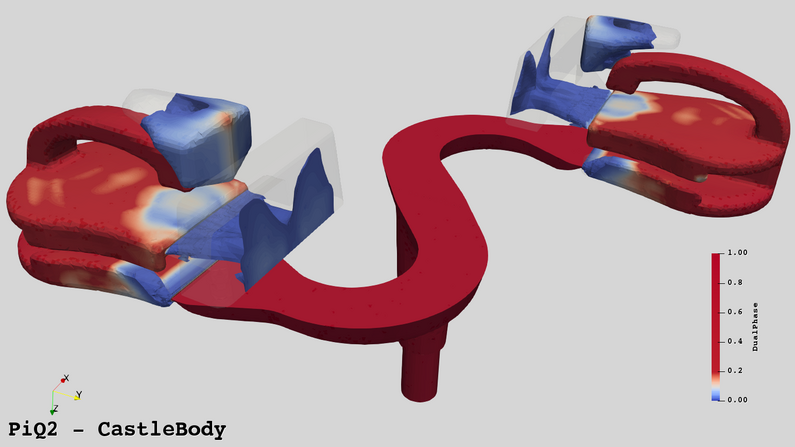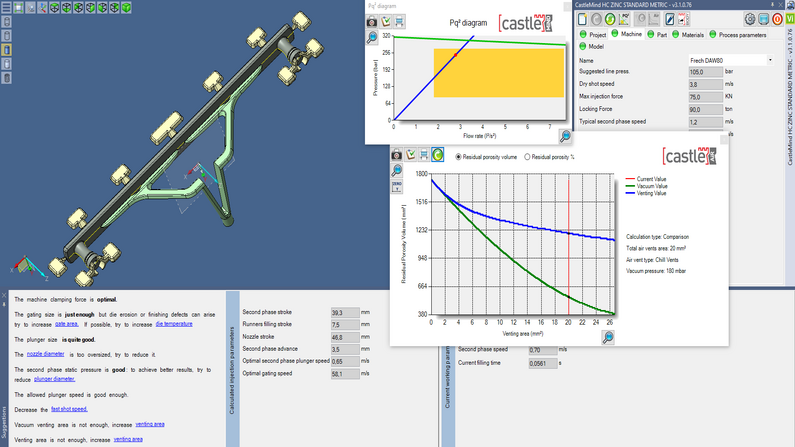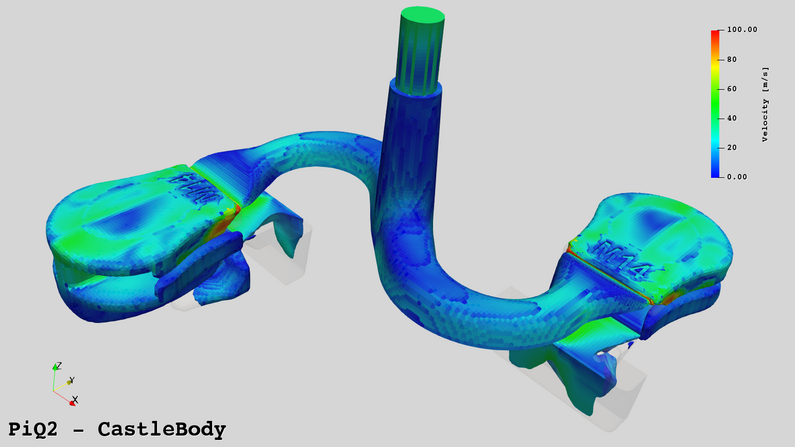One of the sectors in which PiQ² software finds a fruitful field of application is that of aesthetic design parts and fashion accessories in Zamak, zinc alloy. PiQ² has always collaborated with companies in this sector in the three large districts of the Italian territory that are world leaders in supplying these types of components.
Sliders of zippers, buckles, components for luggage and leather goods, gadgets, caps for perfume bottles, handles and design lighting: these are just some of the products that fall within the scope of Zamak castings and micro-castings for design and fashion applications.
In the early days of the development of the Castle suite, no simulation software on the market was able to correctly simulate the die-casting processes for components and micro-components in Zamak used in these sectors. The companies that produce these components are realities that, although sometimes they are considerable in size, have mostly a handcraft approach while supplying directly to large brands. PiQ², thanks to the collaboration of important companies in this sector, has capitalized on the experience gained over the years, collected the needs of manufacturers, and addressed the development of its software to meet their needs.
Products and processes
Most of the Zamak components and micro-components are finished with electroplating or painting treatments that protect the die-cast product from corrosion and ennoble the part itself.
As Zamak alloy is an unattractive and easily oxidized grey colour, it is a metal that rarely finds an as-cast application, but fortunately, it proves to be an excellent support for any kind of finish, as long as the quality of the casting is excellent. When performing aesthetic surface treatments, polishing the surfaces, making them shiny and trying to make them resemble those of gold or brass, for example, every slightest defect stands out and becomes an insurmountable obstacle. Therefore, it requires for the final quality evaluation an extreme attention from the aesthetic point of view, as opposed to a technical part that requires mainly structural soundness and resistance.
The components and micro-components for the design sector are frequently products that present a very short development path, especially for fashion applications. Once the stylist’s or designer’s drawing is completed, the sample must be ready after a few days for ready-to-wear. In addition to the urgency, there is also a critical issue linked to the need to match the aesthetic needs to the technical feasibility and to respect the geometry and style of the brands, which are the elements that give the final product the added value. Despite the very tight development times, the possibility of carrying out a detailed upstream analysis guarantees precision and accuracy in the final product, allowing production reliability as well as shortening and making delivery times sure.
The components and micro-components in Zamak for the design sector may have different life cycles: they range from parts produced in millions of pieces and for several years to others made only for a single season in very limited editions of a few hundred copies. However, all these products have a common need: that of having a high-quality surface finish, thus requiring software capable of detecting extremely small defects, such as a tiny air bubble on a buckle for a high fashion bag.
The Castle suite support
With the technical feature of the Dual-Phase simulation and with the ability to locate very fine emulsions of very small quantities of air inside the material, over time, PiQ² has developed specific and increasingly optimized versions of the software for these particular aesthetic components, at a point that over the years it has become a supplier of all the largest manufacturers of castings and micro-castings in Zamak. By collaborating with these companies, the Castle suite has developed gradually in the direction of their needs. Both CastleBody and CastleMind (in the hot chamber version) have been perfected to meet the necessity for attention to detail and precision on very small components, thus facilitating the work of mold makers and foundries in the sector.

The product design is a field in which the simplicity of the software and the continuous support to the user have allowed the Castle suite to take on a significant role: thanks to its technical characteristics of meshing that allow simulating geometries with minute details, specific management of alloys and DualPhase technology simulation, the Castle suite has brought a technological footprint to a mostly artisanal universe, allowing mold makers and foundries to prevent typical defects affecting their products.
Furthermore, as per established practice, in addition to the software development, PiQ² acts as a 360 ° technological consultant to solve problems related to the design of molds or foundry processes. PiQ², therefore, sells to its customers actual knowledge-based support for troubleshooting, thus making a real contribution to their business growth by combining the artistic talent of their craftsmanship with the most modern development technologies.

If you are interested in learning more about these issues and you work in the fashion sector, contact us by filling out our form: our PiQ² consultants will know how to best support you!

